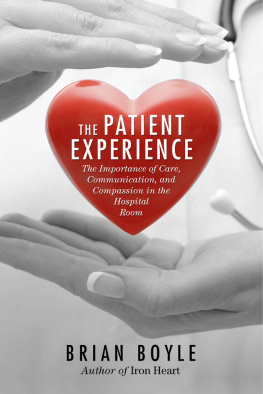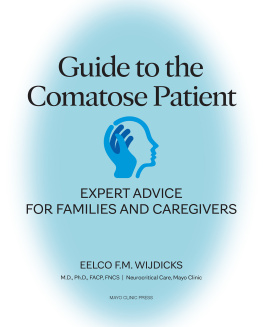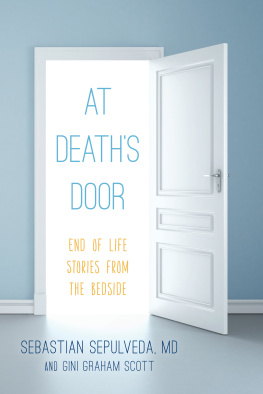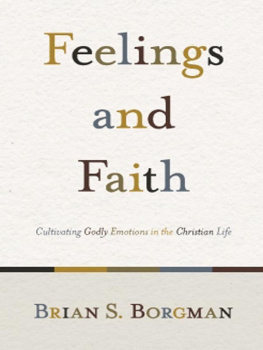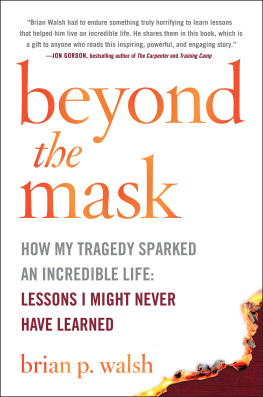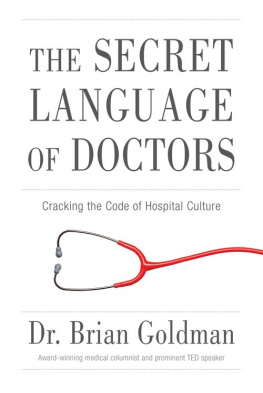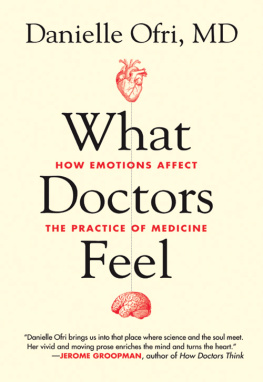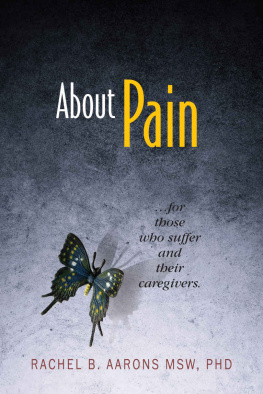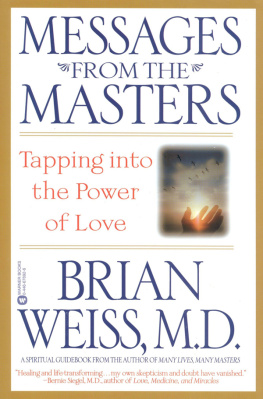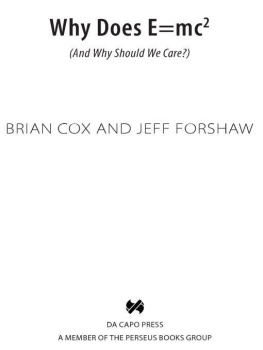The patient engagement is key to better patient outcomes, lower costs of care, and more joyful clinicians. Health care needs people like Brian Boyle to keep us focused on the goal, to have an impact.
Dr. Peter Pronovost, Johns Hopkins Medicine
Copyright 2015 by Brian Boyle
All rights reserved. No part of this book may be reproduced in any manner without the express written consent of the publisher, except in the case of brief excerpts in critical reviews or articles. All inquiries should be addressed to Skyhorse Publishing, 307 West 36th Street, 11th Floor, New York, NY 10018.
Skyhorse Publishing books may be purchased in bulk at special discounts for sales promotion, corporate gifts, fund-raising, or educational purposes. Special editions can also be created to specifications. For details, contact the Special Sales Department, Skyhorse Publishing, 307 West 36th Street, 11th Floor, New York, NY 10018 or .
Skyhorse and Skyhorse Publishing are registered trademarks of Skyhorse Publishing, Inc., a Delaware corporation.
Visit our website at www.skyhorsepublishing.com.
10 9 8 7 6 5 4 3 2 1
Library of Congress Cataloging-in-Publication Data is available on file.
Cover photo credit: Thinkstock
Print ISBN: 978-1-63220-710-4
Ebook ISBN: 978-1-63220-929-0
Printed in the United States of America
In my moment of pain,
You gave me comfort.
In my vision of darkness,
You gave me light.
In my world of loneliness,
You held my hand.
In my hour of doubt,
You gave me hope.
In my time of dying,
You gave me life.

This book is dedicated to all the individuals who have chosen to pursue their lifes work in health care. Thank you for choosing this path and for all the good that you do.
CONTENTS
FOREWORD
A LTHOUGH THE WORLD IS FULL OF SUFFERING, IT IS ALSO FULL OF THE OVERCOMING OF IT . Helen Keller
I T IS ODD TO THINK THAT THE CIRCUMSTANCES THAT BROUGHT B RIAN Boyle into our lives are ones we would not wish on our worst enemies. Yet, we are eternally grateful for knowing him and his family, and our lives will forever be enriched by our shared experiences.
In 2004, Brian was in a horrific car crash that left him clinging to life in a hospital bed. The months of agony he endured during recovery and the triumph of his incredible spirit over adversity are chronicled in his 2009 book, Iron Heart .
After the crash, Brian and his parents, JoAnn and Garth, found themselves thrust into a scary and lonely environment in which they had little control. At the darkest time in their lives, they placed their hope and faith in the women and men who chose as their lifes work to heal the sick. Those strangers soon became friends and later, a second family.
We met Brian in 2010 and, as educators, we encouraged him to share his experiences and what he had learned firsthand as a patient near deathin a medically induced comawith the hope of changing health care for the better. Perhaps the greatest lesson the Boyle family learned and later shared is that the miracles he achieved were not solitary accomplishments. In this book, Brian likens the effort to that of a relay team, where each member has an essential part to play for the team to be successful.
It is our sincere hope that families will recognize the important lessons in this story as they travel their own paths and understand the important role they play in the health of their loved ones, as well as their right and duty to be involved in their loved ones care. As individuals who have spent many years working in the health care system and continue to do so, we also wish, for our colleagues, that they will approach this book with an open mind and heart and recognize that embracing the family as part of total patient care brings us closer to our reason for choosing this profession in the first place: to cure and care for those who need our help.
Brian and his family tell an incredibly raw story of survival and success, made possible only with the help of inspirational health care professionals. We can all learn from them.
Alison Burrows, MBA, RN, and Mark Rulle, EdD
The Maryland Healthcare Education Institute
PROLOGUE
T HE WORLD IS FULL OF UNKNOWNS . W E WERE A NORMAL FAMILY LIVING a happy life, and then one day, a near-fatal car accident changed everything. The life we knew was shattered. For the next few months, we were constantly faced with unfathomable uncertainty and total despair.
While in a two-month-long medically induced coma, I was unable to move or talk to anyone around me, yet I was able to hear, see, and feel pain for a majority of my time in the Intensive Care Unit. As a family, we never thought that we would face such a traumatic situation, such a horrific nightmare. We were thrown into a place consisting of surgeries, machines, tubes, blood, and medical terms that caused utter confusion. We were in the hands of my medical team, and a few of them even said I was in Gods hands.
Life seems to go on standby when you enter this unfamiliar realm. You frequently come face to face with the strength of the human spirit and the perseverance of the mind and the body. Throughout this entire ordeal, my parents and I experienced how unforgiving life can be and how it can drastically change in the blink of an eye. There was no guidebook or support group to prepare us for what we were in for as a family.
What I learned throughout my time in the hospital is that while I may have been the patient lying in the hospital bed, I was not the only one in that room who was suffering. The observations that I made truly inspired me and helped me understand how important the role of communication is among the patient, family, and health care provider. When I was able to learn how to talk again, I soon discovered that the power of the voice is amplified when the message is of gratitude, that a simple smile cannot be underestimated, and that body language and tone of voice are critical components within the hospital room.
The idea of this book came about through many conversations with care providers all over the country. I always offer a question-and-answer session at the end of my health care presentations, and a question that is asked every single time is: What can care providers do better when it comes to treating the patient? In all honesty, I had trouble answering this question during my first few years of speaking about my experience. When they asked me this question, I explained that I am alive, breathing on my own, living life to the fullest, and I have my amazing care team to thank for that. I am also very positive and I rarely reflect on negative scenarios or experiences, but that answer did not satisfy them. They urged me to offer a few personal suggestions that I thought could help improve the patient experience, the quality of care, the communication, and the healing collaboration between patient and care provider.
When my parents attended my events with me, they were asked how care providers can improve the experience for the family in the hospital setting. After a lot of soul-searching, my parents and I came to the conclusion that our experiences not only could help other patients and families going through a similar ordeal, but also could help care providers offer the best possible care to those patients and families.
Every patient in the hospital has a story, and along with their loved ones, they share an experience. After all we have been through, we made the decision to put our thoughts and experiences together to share our sincere gratitude and insight with the medical community from a patient and family perspective. We also hope that our experiences can offer hope and guidance for families facing the heartbreaking sadness when an unexpected, life-altering medical situation occurs.
Next page
